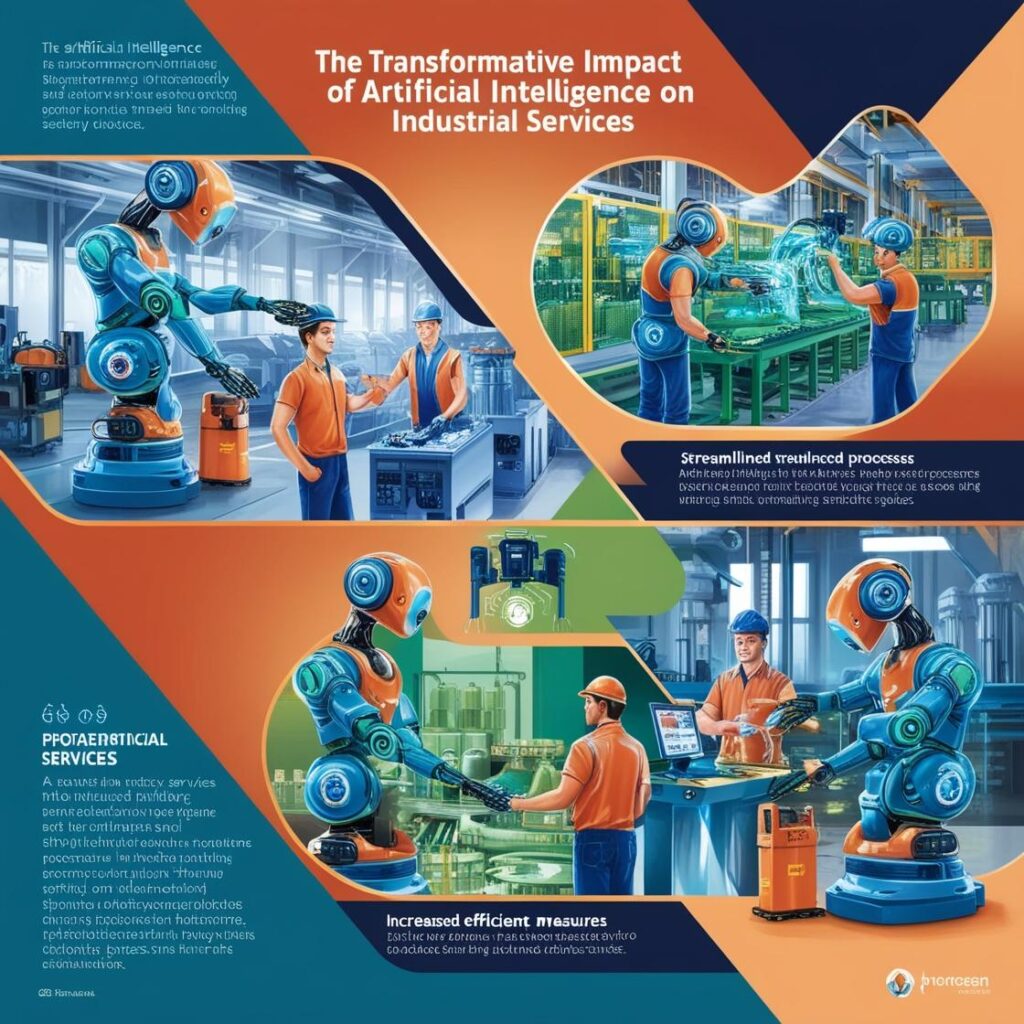Artificial Intelligence (AI) is redefining industrial services across sectors, driving efficiency, precision, and scalability. In logistics, automotive, and robotics, AI-enabled industrial services are fostering innovation while addressing challenges in supply chain management, manufacturing processes, and automation.

Industrial Services Market Ecosystem
The AI industrial services market is dominated by established and financially sound manufacturers with extensive experience in the industry. These companies have diversified product portfolios, cutting-edge technologies, and strong global sales and marketing networks. Leading players in the market include ABB from Switzerland, Honeywell International Inc. from the US, Rockwell Automation from the US, Schneider Electric from France, and Siemens from Germany.
AI in Logistics
AI industrial services are revolutionizing logistics through enhanced predictive analytics, route optimization, and demand forecasting. For example:
- Warehouse Automation: AI-powered systems streamline operations by enabling dynamic slotting, real-time inventory tracking, and efficient space utilization.
- Predictive Maintenance: AI monitors the health of logistics equipment, such as conveyor belts and delivery vehicles, reducing downtime and increasing efficiency.
- Smart Routing: AI systems analyze traffic, weather, and delivery schedules to optimize routes, reducing costs and improving delivery times.
AI in the Automotive Industry
The automotive sector is benefiting from AI industrial services in design, manufacturing, and vehicle technology:
- Smart Manufacturing: AI-driven robots perform complex tasks such as welding, painting, and assembly with high precision, ensuring consistency and quality.
- Predictive Quality Control: AI detects manufacturing defects early, reducing waste and enhancing product reliability.
- Connected Vehicles: AI supports the development of autonomous and connected cars, enhancing safety and driving experience.
- Supply Chain Optimization: AI tools track components and predict delays, ensuring timely production.
AI in Robotics
AI enhances robotic capabilities, expanding their use in industrial environments:
- Collaborative Robots (Cobots): AI-enabled cobots work alongside humans, performing repetitive tasks and reducing workplace injuries.
- Vision Systems: AI empowers robots with advanced image recognition, enabling precise object handling in manufacturing and logistics.
- Machine Learning in Robotics: AI allows robots to learn from data, adapt to new tasks, and improve performance over time.
- Automation in Warehousing: Robots equipped with AI can pick, pack, and sort items more efficiently, supporting logistics operations.
Synergies Across Industries
AI industrial services are breaking down silos between logistics, automotive, and robotics by creating integrated ecosystems. For example, in an automated automotive factory, AI can synchronize production lines with logistics robots to ensure seamless material handling.
Future Prospects
AI industrial services are expected to grow exponentially as industries adopt smart technologies to improve productivity and sustainability. For North America, these advancements promise a significant impact on global competitiveness, environmental goals, and customer satisfaction.
AI’s role in industrial services marks a new era of innovation, transforming logistics, automotive, and robotics industries into agile, intelligent ecosystems.
